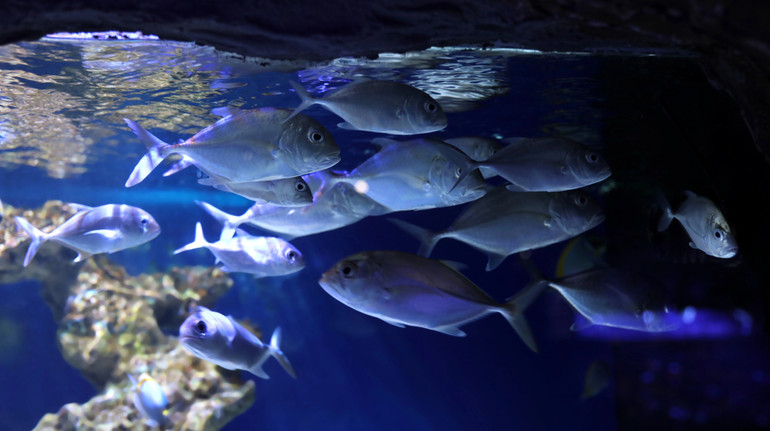Why humanity still little knows about the oceans: Explanation

Humanity has explored only a third of the creatures inhabiting the oceans
Newafrica/Depositphotos
Scientists have estimated that in the course of underwater missions, humanity has investigated only about 0.0001% of the ocean, which begins at a depth of 200 meters.
And in the near future it will not be possible. The authors estimated that even if a thousand remotely controlled deep -sea submarine apparatus was already examined by 3 square kilometers every day, it would take another 100,000 years to study all the diversity of the oceans.
This is stated in a recent study, Posted In Science Advances, reports Popular Science.
”We have visual descriptions of a meager percentage of a deep -sea seabed – an ecosystem that covers 66% of the surface of the planet Earth.
Our maximum score of 3823 km², or 0.001% of the deep sea sea, geographically corresponds to the size of the smallest state of the United States of Rod Island (2678 km²), or the tenth of Belgium size (30 688 km²)« , – the publication reads.
For comparison, the area of Ukraine is 603 628 km².
The oceans contain much more biological species than lives: about a million different species. Researchers have now cataloged and described approximately a third of these creatures. If you add microorganisms here, it will turn out a plus of several million.
Even less known about the oceanic floor. As of June 2024, scientists have mapped only 26.1% of the ocean bottom of the Earth with the help of high resolution technology.
For a thorough examination of the oceanic floor it is necessary to carry out underwater expeditions, which is expensive and dangerous. In total, ten devices have been certified in the world that can descend to a great depth with a guarantee of safety for the lives of researchers.
In addition, scientists have identified another problem: mostly similar dives occurred in several major locations – near the USA, Japan and New Zealand.
”This small and biased sampling is a problem when trying to characterize and understand the global ocean« , – the authors write.
Statistics show that the number of dives began to increase since the 2000s. This is what gives rise to researchers that over the next decades, the oceans will be more investigated.
”In addition to accelerating the collection of visual data, the community of deep -sea researchers must determine the target set of places whose research will allow to fill the gaps and create the first impartial and statistically representative biogeographic characteristics« , – scientists summarize.
We will remind, in June 2023 at a depth in the Atlantic Ocean exploded A deep -sea titanium submarine, which sailed with a group of tourists to inspect the Titanic fragments.







